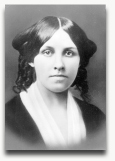Kit Bakke's Blog, page 6
July 23, 2015
Books Beyond our Borders

The World!
American readers don’t pay much attention to contemporary books published in other countries and written by non-Americans. Even when they’ve been translated into English, The New York Times Book Review doesn’t review them much and they aren’t in the front windows of bookstores. So we don’t read them. Our loss, on many levels.
There are a few exceptions—Karl Ove Knausgaard, the Norwegian author of the incredibly detailed and astoundingly everyday-but-not-at-all story of his life, My Struggle and the Japanese novelist Haruki Murakami whose latest book has the ungainly title Colorless Tsukuru Tazaki and His Years of Pilgrimage. Both these books and their authors have “made it” in the U.S. market, to the benefit of us all.
But examples like these are far and few between. Ask your friends when they last read a book written in the last ten years by a non-American. I take this as yet another example of my ever so powerful nation thinking that no way better than our way. Most of us never travel outside the U.S., don’t read newspapers or watch news from non-American sources, and really, have little idea what the rest of the world is thinking about.
Publishers Weekly, the trade rag for the writing biz, notes two interesting international books this week—and I thought I’d give them a plug too, in the interest of international exchange and understanding. My bit for world peace today. The first is a collection of short stories by the Greek author Christos Ikonomou titled All Good Things Will Come from the Sea. It’s a series of stories about a group of Athenians who decide to move to an Aegean island in response to their country’s economic collapse. Sounds interesting, right?
The second book Pub Weekly highlights is a novella by Che Guevara’s grandson, also topical this week with the resumption of normal diplomatic relations between Cuba and the U.S. The author of 33 Revolutions is Canek Sánchez Guevara, a political dissident and musician who died in Mexico in January. The book, not yet released, is designed like a record album featuring 33 songs. Pub Weekly describes it as the story of a bureaucrat on a Caribbean island whose country is essentially like a broken record: nothing works and everything remains the same.
I know millions of Americans are in book clubs of some sort. Maybe, when you choose your books for the coming months, consider a run of contemporary books by non-American authors. You might enjoy a peek into the thoughts and imaginations of the rest of the world—it’s a big place out there.
The post Books Beyond our Borders appeared first on Kit Bakke, author of Dancing on the Edge and Miss Alcott's E-mail.
July 17, 2015
English Time Travel

The good ol’ days in Gloucestershire
Those of you who know me know how much I love all things English. I love strong tea with milk. I love narrow country roads with hedgerows on both sides. Desserts are ‘puddings’. People are ‘keen’ on things. Good ideas are ‘brilliant’. I love Jane Austen and Terry Pratchett. I think Jamie Oliver is both cute and principled. Those fast-disappearing red telephone boxes! The London underground! They may have giant office skyscrapers in London, but they don’t name them blustery, braggy names like “Freedom Tower” or “Trump Tower”—their two biggest ones are The Gherkin and The Shard.
England is a country that has gracefully learned how not to be an empire. Yes, they were an empire once, a very thoughtless and cruel one indeed (imperialism doesn’t exist any other way). But now they are pretty much happy living as gently as possible on their tiny little island. Their National Trust is conserving land and coastline like crazy, protecting butterflies and iron-age burial sites and Georgian country houses all over the place. Their hundreds of thousands of public footpaths are protected and well-used by hikers (they call them ramblers) from 5 to 95 years old. They have a national health service!! Not perfect, but it’s there. Their art museums are free!!
I’ve spent as much time as possible in England—visiting at least once a year, and wallowing in books by English people or about England much of the rest of the time. I’ve walked across the island on the Coast-to-Coast path, a mostly unmarked 192 mile ramble cobbled together by a misanthropic accountant named Alfred Wainwright. When I was 64, four friends of mine and I went to the Isle of Wight; we walked around singing the Beatles’ song “When I’m 64” for a week.
All this is to give you context for a book recommendation I’m going to make. It was written in the 1950s by an Englishman who is known primarily as a poet, but whose most well-known book is this one. It’s called Cider with Rosie and the author is Laurie Lee. Cider with Rosie is enormously evocative, a bit like Dylan Thomas’ A Child’s Christmas in Wales. It’s the story of his childhood in a Gloucestershire village in the 1930s, one of seven children raised by a single mother in a tiny cottage—no running water, the latrine out back, never enough to eat, but flowers in the garden, a piano in a corner, lots of books, a pond to skate on in the winter and a huge valley to run around in. The squire was still the squire and everyone else doffed their caps. Things hadn’t changed much in 500 years. Lee chronicles a rural childhood before cars, electricity and antibiotics—a whole way of life, for good and for bad, that has disappeared in a flash.
Lee’s life as an adult, when he left the valley and the 20th century hit him full in the face, was full of ups and downs, with lots of stops at the pub. But let all that go for the moment. When you are in the mood, being a little boy in Gloucestershire in those dark ages is just the place to be.
The post English Time Travel appeared first on Kit Bakke, author of Dancing on the Edge and Miss Alcott's E-mail.
July 11, 2015
Trending Along
I’ve been told that if I want anyone to read my blogs I should write about what’s “trending,” which I think means writing about what other people are writing about.
Like lemmings, are we?
Seems a little unimaginative to me, but I’m willing to give it a try. There’s a lot out there trending like crazy, Most of it, though, is stuff I don’t know enough about to issue a serious opinion or contribute meaningfully to the conversation. If it is a conversation, which I sincerely doubt. Mostly, it seems to be people who’ve already made up their minds writing to other people who have also made up their minds. Either they agree or disagree with each other. Their comments don’t give the impression that they are open to the possibility of altering their own position, come hell or high water.
So let’s see what’s trending this week. Google News, which decides what’s news by what gets clicked on the most (the ultimate in trending), describes itself as “a computer-generated news site that aggregates headlines from news sources worldwide, groups similar stories together and displays them according to each reader’s personalized interests…Our articles are selected and ranked by computers that evaluate, among other things, how often and on what sites a story appears online.”
OK, let’s dive right in. Here’s my Gang of Four:
Trump! Of course. Fun for some, an embarrassment to others. Hardly the stuff of serious discussion, though. Never mind that we are talking about the leader of the free world. We’re so cynical and disaffected that we’ve reduced the US presidential race to a periodic entertainment. Actually, I think there’s some truth in that—the US presidency isn’t nearly as powerful a position as maybe we thought it was.
Computer glitches galore. This was the week where the New York Stock Exchange had to shut down because of software malfunction. Ditto America Airlines. Ditto the Wall Street Journal’s online site. Could be viewed as entertainment as well, but I can’t help seeing it as complexity beyond complexity. And all those federal employees whose data was hacked. Do we see a pattern here? We should.
And Greece. But it’s not just Greece. It’s the bullying IMF and Germany. I have a soft heart for the idea of European unity and it saddens me to see it foundering here. But do I know enough to have a constructive comment? Piketty, yes, for sure read his comments http://thewire.in/2015/07/08/thomas-piketty-germany-has-never-repaid-its-debts-it-has-no-right-to-lecture-greece/
But me? Not so much.
The confederate flag. Sorry, I’m not going to touch that one. Let’s focus on guns instead of flags.
The post Trending Along appeared first on Kit Bakke, author of Dancing on the Edge and Miss Alcott's E-mail.
July 3, 2015
Remodeling: Tear it Up

Your kitchen: Get used to it.
Have you lived through a house renovation and lived to tell about it? Did your marriage almost fall apart after living in a ripped up house for a year or so? Have you had it up to here with construction guys showing up at your house at 7 am 5 days a week for months and months? Are your neighbors tired of the noise and the dumpster on the street?
I think of this now because both our daughters have torn up their kitchens this month. Down to the studs, and where they are moving walls, the destruction continues into the ceiling and the floor below to carry the weight safely to the new wall location. Kitchens and bathrooms are, obviously, the most expensive, disruptive and problem-fraught remodels to live through. All that wiring! All that plumbing!
Doing the dishes in the basement sink or the bathtub wears thin quickly. Having the fridge in the living room isn’t a prime decorating choice. And there’s likely no stove or oven at all—you are reduced to a toaster oven and maybe a microwave or a hotplate.
It’s like upscale camping, really. What’s to complain about? Well, nothing, if you like camping for months and months, maybe a year or so.
The other thing about remodeling is that if you have an old house, which both daughters have, and which my husband and I also have, then you and your carpenters, plumbers and electricians are going to uncover some unexpected and expensive problems.
Gosh, there’s still knob-and-tube wiring here!
Sorry ma’m, this pipe is going to have to be replaced all the way out to the sidewalk.
Yes, the earthquake safety codes have been revised and now you need steel beams and helical anchors driven down into your foundation.
The glass in these new windows will have to be tempered because it’s less than 18 inches off the floor.
You have dry rot all through this subfloor.
And so the costs mount up. My husband says you should take your estimate, and multiply it by pi.
Perhaps you think you can save money by doing some of the work yourself. Perhaps so, but if you go even the tiniest inch down that path, it’s going to take longer and be more traumatic all around. Even if you aren’t putting hand to hammer, you need to be around to answer the millions of detailed questions that the workers need immediate answers to or else they will do something that you will hate forever. It’s best if there’s a responsible adult owner around pretty much ALL the time. Architects don’t count—their drawings aren’t detailed enough and may not take the engineering realities into account. Even if the drawings are perfect two-dimensional renderings, they may not make sense in the contractor’s (and your) three-dimensional world.
My advice, after living through several remodels: First off, it’s usually worth it. The dust and the chaos will END. You will get your house back. Along the way, try to be consummately considerate and extremely nice to your workers. Bake them cookies. Provide a cooler with juices and water. Be prepared to answer all their questions about closet doors, window openings, electrical outlet placement. Smile. Help keep the job site picked up and as tidy as possible. Best yet, pay them promptly!
The post Remodeling: Tear it Up appeared first on Kit Bakke, author of Dancing on the Edge and Miss Alcott's E-mail.
June 25, 2015
Seattle

Cranes over Seattle
Seattle is my hometown. Born and bred. We have a historical movement called “Lesser Seattle” which tries to keep people away. We over-emphasize our reputation for rain, hoping that will keep you away. We had a terrible depression in 1970, epitomized by the billboard near our airport “Will the last person leaving Seattle please turn out the lights.” The U-Haul dealers in town were completely out of trailers.
But today, we are miserable failures at being small—Seattle is now the fastest growing city in the country. The city is a forest of construction cranes, and has been for a couple years. The engine of our economy is not just Boeing, as it was in the old days (lumber and fishing in the really old days).
Now we’ve diversified, but Amazon is leading the tech pack these days, building snazzy new 40 story towers downtown for its headquarters. Apartments are being built left and right to accommodate the newly arrived and newly hired. The jobs are a magnet—jobs for construction workers, jobs for tech people, jobs for restaurant and service workers who take care of everyone’s daily needs. So is everyone happy?
No, not at all. You can guess the rub—housing can’t keep up, even with hundreds of new units being built. As supply relative to demand goes down, rents go up. Some can afford it, but many can’t. Even with our $15 minimum wage going into effect, many fully employed Seattleites have to double up in tiny spaces, live in cars, and camp with friends outside town.
A 2015 study by the National Low Income Housing Coalition www.nlhc.org/oor has created a clear and graphic review of housing problems state by state. They’ve created an interactive map backed up by pages of statistics showing the hourly wage that a household must earn working full time in order to rent a 2 bedroom apartment without paying more than 30% (the amount insurers and financial experts have always suggested is the most someone should pay for housing) of their income for it.
In Washington State, such a household would have to earn almost $22/hr. There are nine other states where the minimum wage would have to be over $20/hr. Think about it—take a look at the report, look up your state and then imagine having a job but no home. A lot of people don’t have to imagine it—they’re living it.
The post Seattle appeared first on Kit Bakke, author of Dancing on the Edge and Miss Alcott's E-mail.
June 23, 2015
Don Quixote Rides On
I was just in the San Francisco Bay Area. That’s Mt Tam in Marin County in the distance. It’s sunny, which is pleasant, but the cloudlessness of the California skies are a problem too—the whole state is in a serious, five year drought. My husband and I are visiting in-laws of various generations and are being inaugurated into sharing our shower water, collected in large orange plastic Home Depot buckets with the potted plants on the deck.
And of course that’s Don Quixote in the foreground. Who else could it be? His skinny, irrepressible and idiotic courage is known to most of us, even though the chances we’ve read Cervantes’ brilliant novel are about nil.
The Man of La Mancha stands tall along a grassy path along the Bay near the Larkspur-to-San Francisco ferry dock. Maybe he’s looking for water, or praying for rain.
We likely haven’t read the novel Don Quixote because it’s over 900 pages long. Published in 2 volumes in 1605 and 1615 it’s often considered the first novel ever. Not only long, it’s tricky. There is a story within a story within a story, told by a possibly unreliable narrator who’s in jail. Really quite post-modern, if you think about it. And there’s funny bits too. Nabokov said that Don Quixote “stands for everything that is gentle, forlorn, pure, unselfish and gallant. The parody has become a paragon.” Milan Kundera (another writer on my short list) said that “Don Quixote is practically unthinkable as a living being, and yet, in our memory, what character is more alive.”
I recently bought a new translation of Don Quixote and am determined to read it. It’s in paperback and the translator is Edith Grossman. Anyone want to read along with me? We could post about it every couple hundred pages. I love the way the chapters are all subtitled, like “Which tells the first sally that the ingenious Don Quixote made from his native land,” (Chapter II) and “Concerning what happened to our knight when he left the inn” (Chapter IV) Or how about “Which recounts Sancho’s ingenuity in enchanting the lady Dulcinea, and other events as ridiculous as they are true” (Chapter X)?
The book ends as all life does, with Don Quixote’s death, in Chapter LXXIV “Which deals with how Don Quixote fell ill, and the will he made, and his death.”
I guess we’d also have to brush up on our Roman numerals if we want to read the book.

May the sun forever shine on the Man of La Mancha
The post Don Quixote Rides On appeared first on Kit Bakke, author of Dancing on the Edge and Miss Alcott's E-mail.
June 12, 2015
Weightlifting for (Old) Dummies
I’ve been in training for the last year and a half. Training, as in lifting weights, pulling on handles connected to weights, pushing on rollers and pads connected to weights, holding weights and balancing on one foot, not to mention holding the weight of my own body on bars over my head or pushing my prone self off the floor—the various methods (and their underlying sameness) go on and on. And for a change, there are a million ways to do crunches.
Why, why am I doing this? Two reasons: I’m getting old and I don’t want to stumble, fall down, break my hip, never walk again, get a pulmonary embolism and die. At least not quite yet. And second, I want to be able to put my bag in the overhead bin of a Boeing 777 all by myself. That’s actually the real reason. I travel a lot and it irritates me that men have so much more upper body strength than women. I want to swoop my bag up there with the greatest of ease and I want people to see me do it. So there! I say.
Seriously though, the training is pretty cool. Scott, our trainer (my husband and I go together, twice a week), is terrific—when we say something is hard, he says, “It’s supposed to be hard. Everything should be hard in here so that everything else you do during the day is easier.”
My husband and I, shrimpy seniors that we are, have become buddies with the other folks in the gym—all young big body-building types. They could crush my arm between their thumb and forefinger, I’m quite sure, but they are nice as can be.
Besides, I now have a little bump on my arms—an actual muscle that mounds up quite amazingly. And the last plane trip I took? I took a broad stance. I tensed my core. I grabbed my bag, and swoop! Up it went! Maybe not as graceful as a ballet dancer lifting his partner over his head, but it darn well did the job.

Go for it!
The post Weightlifting for (Old) Dummies appeared first on Kit Bakke, author of Dancing on the Edge and Miss Alcott's E-mail.
December 5, 2014
Remember December
We’re come around to December in my 1946 Farmer’s Almanac. The month and year of my birth—when I became one more American white person to burden the planet’s resources. December’s Almanac entry advises us to mend our broken tools and spend more time with our kids:
“You may be surprised at the clear-headed, practical wisdom of your younger generation and
their gentle understanding of their parents. Companionship will teach you all something.”
Having worked our way through the entire year of 1946, we are still less than half way through the Almanac’s pages. The rest is devoted to scientific bulletins from the US Department of Agriculture, open season hunting laws for each state, jokes, puzzles, gestation and reproduction tables for various animals, average dates for first and last killing frosts in different areas of the country, postal rates, and advertisements.
The USDA notes include research results showing that chickens lay more eggs when given more space, and that sunflowers can be grown as a useful crop. The puzzle section includes the following:
“Show the digits, which, multiplied by seven, will give a result of all ones.”
If you get it, send me a note at kit@kitbakke.com. Prizes will be awarded.
There’s also a short homage to wood—cutting it, stacking it, burning it: “And no millionaire ever felt richer than the man with his neatly stacked full woodshed. Here is to be found real visible wealth—made of honest labor—wealth which will provide the security of warmth over many a cold month. Here is security, and independence too.” The unnamed author ends with: “Give a man his wood and his cornflakes and the rest of the world is yours.” (This last could have been written yesterday about my brother, whose woodpile is indeed a thing of beauty and a joy forever. But that’s another story.)

My brother’s woodpile goes on and on in his backyard.
Another short column, this one by an author with a name, John Decoven Berry, is titled “Use it up—Make it do.” He tell us:
“Everything has some use. My wife got hold of two old dull hog scrapers. She cleaned them up and prettied them with paint, and guess what?
They are a pair of good looking candlesticks on our kitchen table. You can’t beat women.”
Sadly that last sentence has a couple of meanings. Let’s stick to the benign one and work for the best in 2015!
The post Remember December appeared first on Kit Bakke, author of Dancing on the Edge and Miss Alcott's E-mail.
October 24, 2014
Mentoring: Telling it like it is
Ah yes, mentors. Those people who pick you up when you’re down, who point out the error of your ways in such kind tones that you actually hear what they are saying, who can always find a perfect metaphor or a tiny piece of scintillating dialog buried in your drafty mess of mismatched words. Well, sometimes. Sort of.
Well, sometimes. Sort of.
I would have to say that the most valuable mentoring I’ve ever received has been of the “Danger! Do Not Enter!” variety from battle-scarred professionals of the publishing world. These experienced warriors had no compunctions about ripping the rose-colored glasses right off my face and grinding them to dust in front of my naked eyes. There have been three of them; their influence on me will never go away. One is a best-selling author, one an agent and one a publisher.
When I was in nursing school in the 1970s, I was a single mom with a three year old daughter—more than enough to keep me occupied. But for some reason which I can’t for the life of me remember, I wrote a short story. I can’t even remember what it was about, possibly something about a feisty woman against the world. I must have thought it was incredibly brilliant because I sent it to an author whom I much admired. I was sure she would read it and realize that I was her long lost comrade-in-arms and we would become best friends forever. I’m not sure I was even thinking about publication; it was connection I was looking for.
Amazingly enough, the successful author wrote back to me. The gist was clear: “Authors are very busy people and we don’t have time for this sort of thing. Don’t ever send anything like this to an author again.”
Such was my first glimpse into the real life of a published author. Good to know.
Many years later, after decades of fulltime work, a husband and another daughter, I wrote a book. First it was an idea, then it was an excuse to read a lot of other books, then a lot of writing and rewriting and then, lo and behold, I had a manuscript. What to do next? Find an agent. Or first, find a book that lists agents’ names, addresses and specialties, leaf through it and pick a couple dozen to query. This experience gives the writer the chance to survive (or not) two rounds of rejection—one set from agents, and a second one from publishers.
After many rejections, I finally got a yes, from a venerable east coast agent. Agent Al, as I always think of him, was in his early 70s, and his experience in the book business went back to the golden age of the 1920s and 30s, both in New York and in London. I swooned with delight at his reminiscences and treasured this tenuous link to the storied days of yore. Agent Al didn’t use email, and hated the phone, so all my correspondence with him was via typewritten U.S. mail letters and the occasional fax. He wrote to me early in our relationship:
You speak of phone calls and I must confess that I am allergic to them. Of all methods of communication I dislike phones the most. If speed is of the essence, the fax machine is, i n my opinion, the rare technological success, combining as it does immediacy with the opportunity to think a bit before committing. Also, there’s then a written record of what was said. Phone messages, on the other hand, quickly become indecipherable or otherwise obsolete. As for email, we intend to let that remain a vague rumor so far as we’re concerned.
I hung on Agent Al’s every word. The more he told me about the publishing world, the weirder it sounded. Not like hospitals, where I’d been for gainfully employed for decades. I was appalled to learn that authors generally were paid only twice a year, and that each payment would be for the six-month period not from the immediately past six months, but the six months prior to that. How could any normal working person live with two pay checks a year? Finding out it was due to all the delays and returns in the system that bookstores used to pay publishers for their inventory only added to my sense that the industry was nuts.
Eventually we sold the book which became Miss Alcott’s Email to a Boston publisher who wrote (typewritten again) to me:
Dear Ms. Bakke,
This is just a note to say that I very much enjoyed reading your novel (if that’s what we are going to have to call it) and I’ll be speaking to [Agent Al] soon about an offer. It won’t make you rich, so don’t plan to call the contractor to expand the kitchen, but we’ll do what we can. It’s a wonderful book; I learned a lot. Here’s our latest catalogue so you can see who we are and what we do.
Once in the maelstrom of publication, I was stripped of even more illusions about the straightforwardness of this business. The publication was delayed a couple of years, for reasons that never quite made sense to me, but apparently had to do with the fact that books are like lines of clothing—fashions that come out in the spring and the fall, with publishers fiddling release dates to create the perfect seasonal catalogue.
Agent Al’s final words were that I needed to continually remind myself that “Once your book is out there, you have no control at all. People will either take to it or they won’t. It’s not yours anymore.”
The best mentors ever.
The post Mentoring: Telling it like it is appeared first on Kit Bakke, author of Dancing on the Edge and Miss Alcott's E-mail.
September 2, 2014
A Strange and Restless Month
Apologies for not getting around to blogging on the 1946 August Farmers Almanac entry—August is like that, very distracting with all that sunshine and grilling salmon and visitors and gardening. Now that I look at the 1946 August calendar for farmers, I see it touts the value of the herbicide 2-4-D, which we know today as one of the ingredients of Agent Orange.
Moving right along, the September entry appears similarly uneasy, but unusually poetic. Autumn must do that to people:
Now will the porcupines take their fill of the ripening apples and the deer munch the fine green beans we have tended so carefully. Now will the red fox look to the hen roost and the skunk rattle the lid of the garbage pail. In their wild hearts the coming of autumn is a hunger and a restlessness; for in the turn of the leaf, in the stronger, deeper scent of things in the cool twilights, in the dusty, harvest-breathing afternoons, they can sense even now the coming of winter, the dead season when only the drifts will move.
To man, also, it is a strange and restless month, and unfulfilled interlude, an uneasy expectation of harvest home (yet not home), and hope and expectation are false harvest indeed.
Will there be time enough and hands enough for all there is to do?

I took this picture hiking in England’s Lake District several years ago.
By September 1946, it had been a year since VJ Day—peacetime life was perhaps not meeting expectations. The parties were over; the people who could come home had done so. For the friends and lovers of the people who didn’t, their “hope and expectation” became a “false harvest indeed.”
My parents were part of the lucky ones, busily doing their bit to create the post-war baby boom.My mother would be finishing up her second trimester and probably feeling pretty good—I wasn’t so big that I caused much physical discomfort and she had made it through the hot part of the year. We were living in my grandparents’ house still. My parents must have been thinking about names. Grandmothers-to-be were knitting tiny sweaters and I was sloshing around in a perfect environment without a care in the world.
The post A Strange and Restless Month appeared first on Kit Bakke, author of Dancing on the Edge and Miss Alcott's E-mail.



